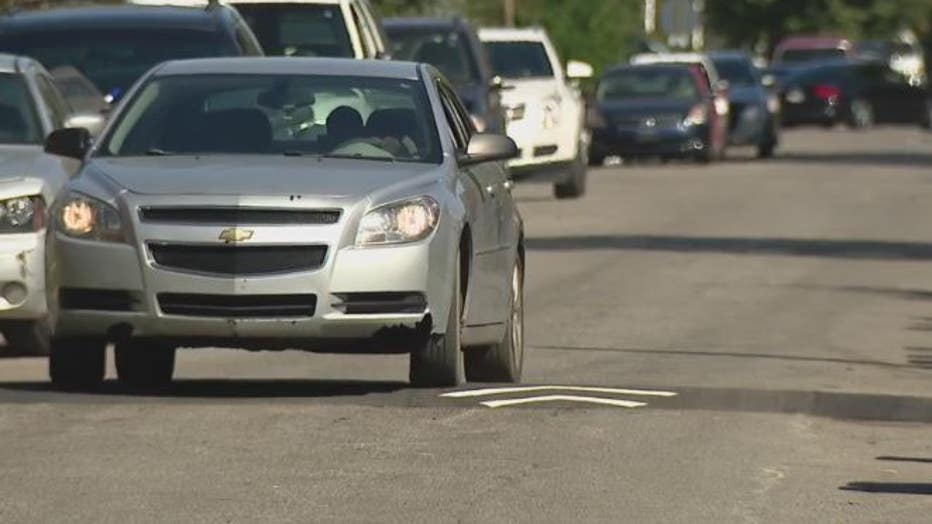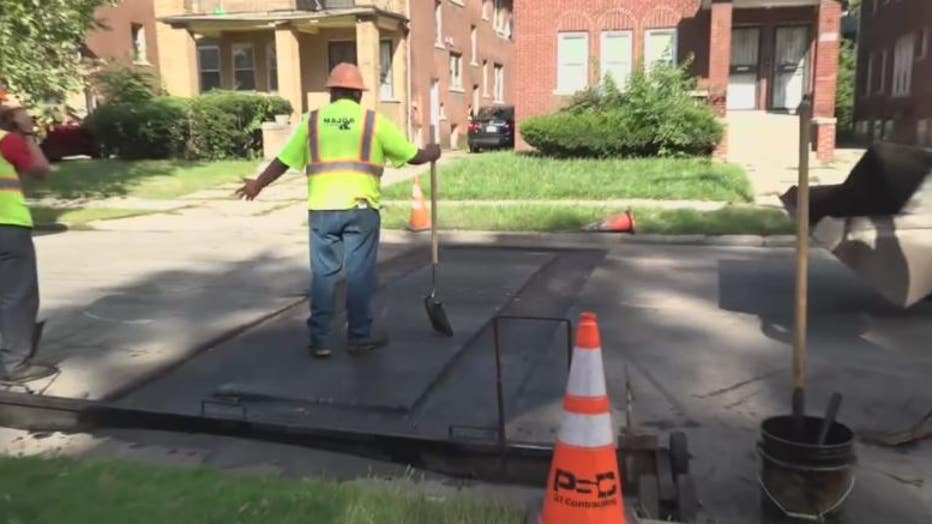Detroit adds 350 more speed humps to this year's 5,200 order to curb reckless drivers

City of Detroit installing speed humps to side streets to curb speeding
In an effort to make neighborhoods safer, crews across the city have been installing speed humps to reduce speeding on side streets.
DETROIT (FOX 2) - Work crews were installing speed humps on Tyler Street in Detroit Wednesday. From the sound of residents in the area - they are long overdue.
"You can’t even cross the street," said Todd Phillips. "People are flying down the street."
"About three years ago, there was a car racing from Dexter ran a stop sign, and hit the corner building here," said Kaci Michael.
"It was like a dragstrip, they were speeding back and forth," said William Mosley.
Residents say they lobbied the city for help leading up to today's installation of speed humps in their neighborhood.
"We install the speed bump cushions on streets that we have residential requests and they must meet a certain set of criteria - like they’re in direct access to a public asset like a park or a school, and those streets that are experiencing speeding and traffic incidents," said DPW Deputy Director Caitlin Malloy-Marcon.
It was just two weeks ago, the city said it was expanding its program for 2021 from 4,500 to 5,200 speed humps.
But requests continue to come in.
"We continue to get requests on a daily basis," said Marcon.
Today the city announced an additional 350 speed humps bringing this year’s total to 5,550.
These Tyler Street residents were overjoyed to see the installation on their street.
Detroit’s speed hump program started as a pilot program in 2019
"We started with a pilot program of one installation in each district," Marcon said. "The following year we grew to 400 locations- and we just kept receiving requests. The following year it was 1,200 locations this year hoping to surpass 4,500 locations, citywide."
She added the city currently has around 20,000 resident requests.
It’s because of that demand the city added 1,000 speed humps than more than initially planned.

"We have multiple crews out on the street," Marcon said. "We usually are installing 25 a day."
Marcon said that speeding and reckless driving is a public health issue, adding it is something the city is struggling with.
"This year the city had budgeted about $11 million to go towards this program," she said. "Those are dollars that come from our transportation fund."
As the speed humps are installed, some residents worry speeding drivers could find other ways to get around the speed humps.
"I’m wondering they may start riding on people's grass - I hope not," Phillips said.
"We still have people that may be trying to speed over them," Marcon said, "but they greatly reduce the residential speeding that we have in the city of Detroit."


